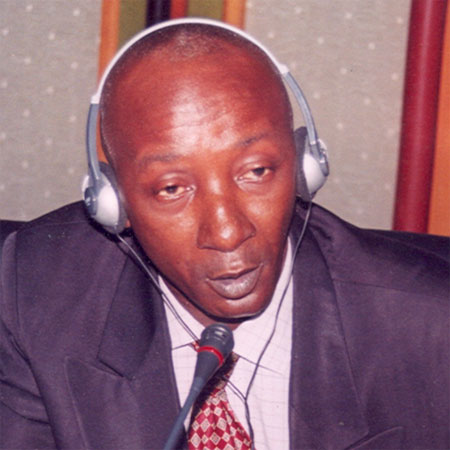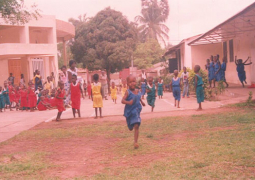
The second ordinary session of the ECOWAS Parliament kicked off in Abuja, Nigeria on Monday with a whole lot of issues on the table for parliamentarians to debate on.
Also on the agenda is the laying of country reports by the heads of delegations.
Below is the report of the Gambian delegation to the ECOWAS Parliament presented by Hon. Abdoulie Suku Singhateh and adopted by the Parliament on Wednesday.
Among the other Gambian parliamentarians at the ECOWAS Parliament are: Hon. Borry Colley, Hon. Lamin Jadama, Hon. Haddy Nyang-Njie, and Hon. Ebrima Jammeh.
Political Situation
The Gambia is a multi-party democracy with about six registered political parties operating and co-existing peacefully. Presidential and Parliamentary elections continue to be held in every five years. The last Presidential election was held in November 2011 which the incumbent President, H.E Sheikh Prof. Alhaji Dr. Yahya A.J.J. Jammeh won with about 72% of the total votes casted. The last Parliamentary Elections was held in March 2012 and 43 out of the contested 48 seats were won by the ruling APRC Party. Both the local and international observers declared the elections as free, fair and transparent.
The National Assembly of The Gambia continues to play active role in the democratic process as well as in our governance processes. The new Ultra-modern National Assembly complex being built at a tune of about US$27 Million is expected to be completed this year.
Security Situation
The Gambia continues to champion peace initiatives in a bid to finding lasting solutions to conflicts in the sub-region. The President, H.E. Sheikh Prof. Alhaji Dr. Yahya A.J.J. Jammeh continues to advocate for peace and regional integration without which development cannot be achieved or sustained.
The Gambian security forces continue to participate in peace-keeping missions around the world especially in the African continent to help bring peace and stability in the continent.
Energy
The Government of The Gambia under its Rural Electrification Project has extended electricity to almost all parts of the country. The Government of The Gambia continues to promote the use of affordable renewable energy and energy efficiency measures by employing very attractive incentives for private sector investment. A technical feasibility study report on a 20MW Solar Photovoltaic Plant has been completed and it is hoped that by end December 2012, The Gambia will commission one of the biggest Solar PV Plant in the sub-region.
Forestry and the Environment
The Government of The Gambia continue to work with partners to pursue policies aimed at conserving, protecting and developing our valuable natural resources for sustainable national development and enhanced livelihood.
Status of Implementation of the ECOWAS Policies and Programmes in terms of infrastructure and transport
The Government of The Gambia is committed to the implementation of some of the ECOWAS programmes. Among these include the ECOWAS Trade Liberalization Scheme (ETLS), the Inter-state Road Transit Scheme (ISRT), Common External Scheme (CET), ECOWAS Protocol on the community levy and the Gambia’s operational plan for ECOWAS EPA-DP.
The Gambia has ratified a grant agreement with the African Development Fund for the construction of a bridge at the Bamba-Tenda/Elli-Tenda crossing known as the Trans-Gambia Bridge. The construction of this bridge will allow free traffic flow between the northern and southern parts of both The Gambia and Senegal. The project is expected to result to the following;
i) Reduce transport cost, travel time and customs formalities time at the borders,
ii) Enhanced potential for trade thereby contributing to poverty reduction and socio-economic empowerment of communities on the corridor and the West African Region as a whole.
The implementation of the first phase includes the construction of Trans-Gambia Bridge, toll facilities and two (2) One Stop Border Posts (OSBPs) fully equipped with weigh bridges and IT facilities. The project also includes the construction of related infrastructure like feeder roads and markets.
ECOWAS Trade Liberalization Scheme
The Government of The Gambia is fully implementing the ECOWAS Trade Liberalization Scheme (ETLS) under which unprocessed goods from the ECOWAS region enter The Gambia duty free. Industrial products that satisfy ECOWAS rules of origin from ETLS certified community enterprises can be exported into The Gambia duty free. An Approval Committee on the scheme has been established chaired by the Ministry of Trade, Employment and Regional Integration.
The Government has also created an enabling environment for Gambian Companies to operate. Presently, about fifteen (15) Gambian registered companies have been granted approval to operate under the ETLS and currently three (3) companies are exporting to the regional market.
However, there still remain challenges for these companies to export smoothly under the scheme. The products of some of the approved companies are subjected to import duties by some of the ECOWAS member countries. This is a major concern which needs to be addressed.
State of Play on Common External Tariff (CET) and the Economic Partnership Agreement (EPA)
The Government of The Gambia increased the rate of the fourth band from 18% to 20% in 2006 to comply with the CET rates. Following the adoption of the fifth band by the Authorities of the ECOWAS Members States in 2008, the Government of The Gambia in 2009 submitted its list of products proposed for the fifth band as requested by the ECOWAS Commission. The ECOWAS Member States are still continuing with the negotiations on products that will be classified under the fifth band.
For the EPA, negotiations are still on going between West Africa and European Union. As at now, some parts of the legal text have been agreed upon, whilst the other aspects of the text continued to be negotiated by the parties.
ECOWAS Inter-State Road Transit Scheme in The Gambia
As part of the efforts to implement the Inter-state Road Transit Scheme (ISRT), The Gambia Chamber of Commerce and Industry was appointed as the National Surety for the coordination and implementation of the ISRT. The Chamber established a Task Force with representation from the Ministries of Trade and Employment and Works Construction and Infrastructure, Security Agencies, Transport Association, Transport owners, Customs, Ports Authority for the successful implementation of the Scheme.
Status of implementation of the ECOWAS Community Levy
The Gambia Revenue Authority is collecting 0.5% of all imports from countries outside the ECOWAS region as ECOWAS Community Levy and remitting it directly into the ECOWAS Account at the central Bank of The Gambia. The National Committee set up in 2004 is also actively monitoring the implementation of the protocol on community levy.
Ratification and Implementation of ECOWAS Protocols and Conventions
The Gambia has ratified almost all ECOWAS Protocols and Conventions and has registered success on the access to ECOWAS travel documents. Consultations are also at an advance stage between the Ministry of Trade, Employment and Regional Integration and the Immigration Department to start issuing ECOWAS Passport.
Status of implementation of the ECOWAS Common Agricultural Policy
The Gambia has since July 2010 formulated and adopted the National Agricultural Investment Plan 2010-2016. A Task Force was established to coordinate the implementation of the National Agricultural Investment Programme in The Gambia.
Status of Implementation of the Macro-economic Convergence Programme and the Single Currency project
Monetary Policy
The Gambia’s monetary policy is geared towards maintaining low inflation, stable exchange rate, a viable external position and sustained economic growth for increased employment and poverty reduction.
Macro-economic Convergence Programme
The Gambia continues to work hard in order to meet the ECOWAS convergence criteria. However, indications are that The Gambia shall soon meet almost all the convergence criteria.
Source: ECOWAS Parliament




